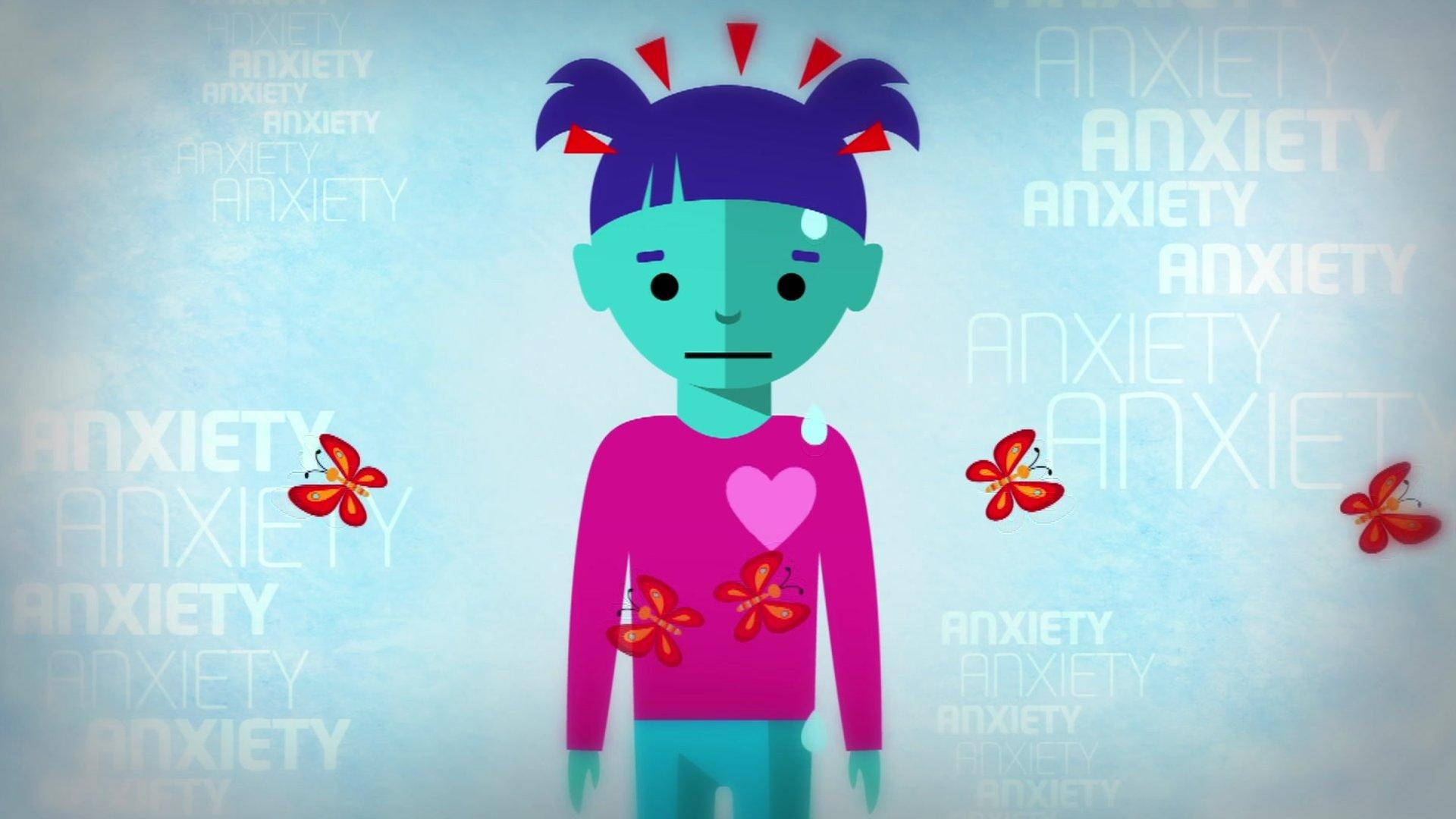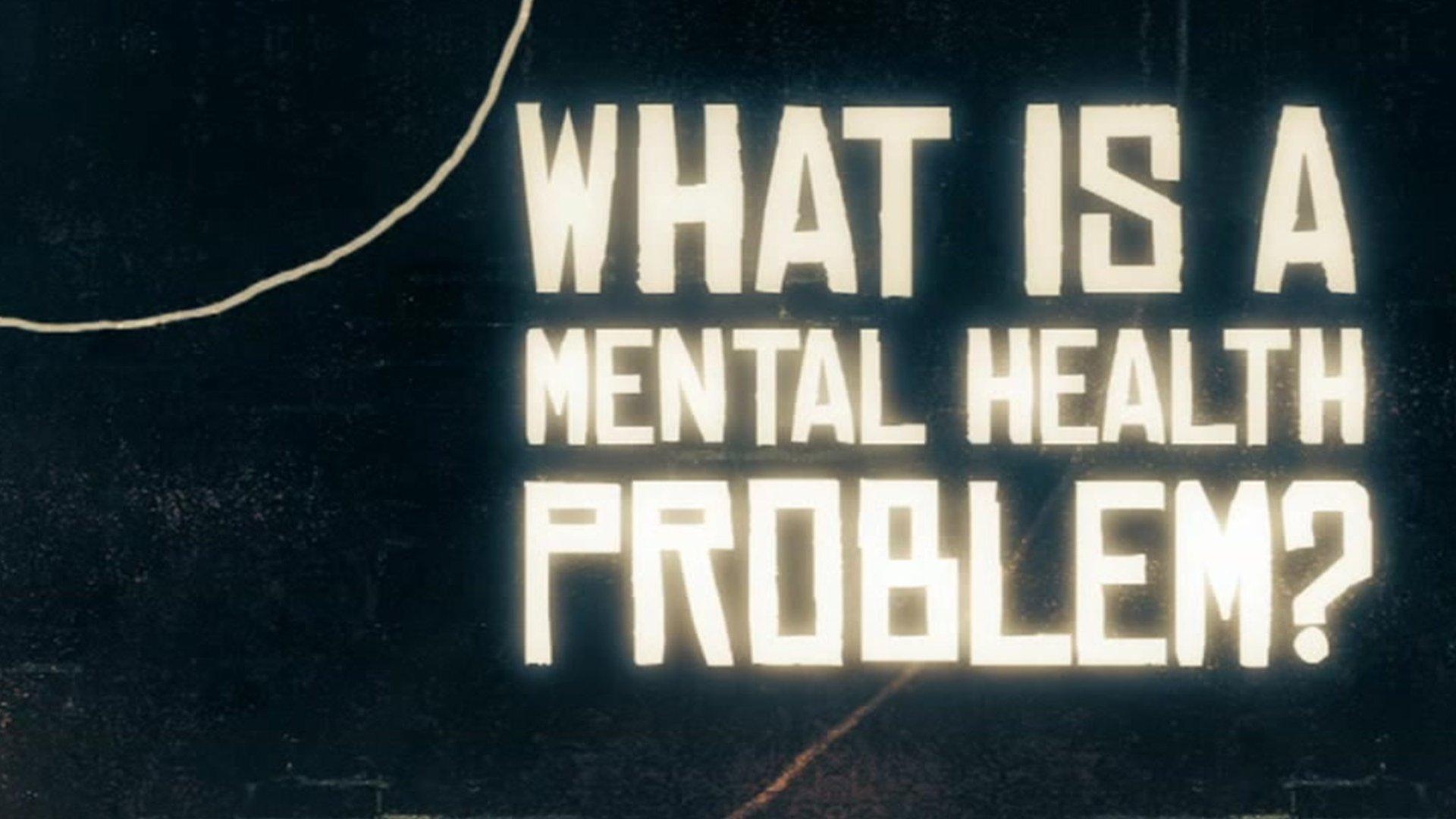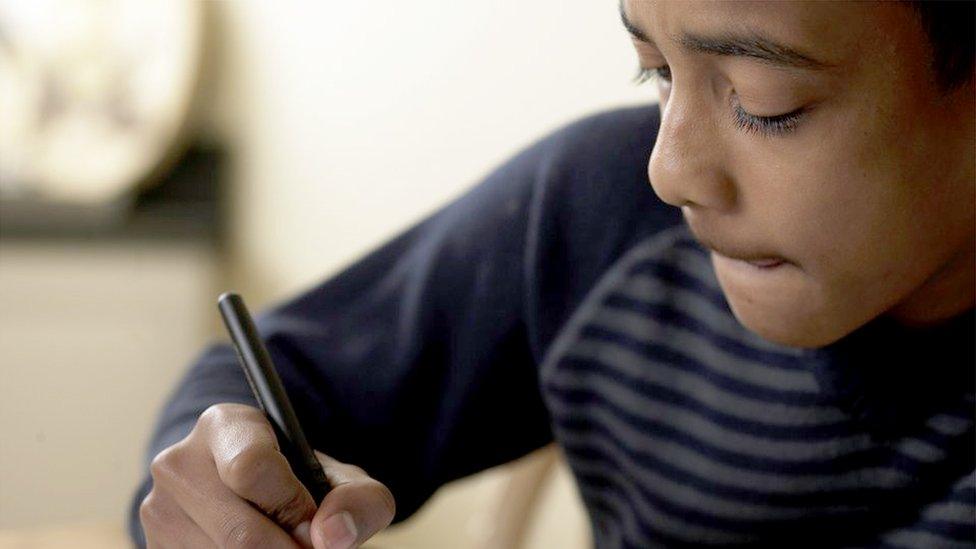'School phobia': What is it?
- Published
- comments

The mental health charity Mind wants the government to do more to help children who suffer from 'school phobia'.
School phobia, also known as school refusal, is when a child refuses to go to school very often or has problems staying in school.
Extreme fear and anxiety are often big reasons why.
Mind is calling for the government to recognise that these children have mental health problems and that they should be allowed to miss school, rather than being treated as truants (missing school with no official reason).
School phobia: Kai's story
What is school phobia?
At the moment there is no definition for school phobia, but Mind says school refusal is when a child "completely refuses to go to school".
Some children leave home in the morning and develop difficulties as they get closer to school and then are unable to go further.
It's often accompanied by physical symptoms too, such as stomach aches, headaches, feeling sick or dizzy, fast heartbeats, and the child begging to stay at home.
What is a mental health problem?
Charity, Young Minds, says there can be lots of reasons a young person feels this way.
It might be that they feel overwhelmed with anxiety about schoolwork or relationships with friends and teachers.
They might be experiencing bullying and not feel able to talk about it, or they might have low self-esteem.
A young person who is refusing to go to school might also be worried about things going on at home, including big life changes such as family breakdowns or bereavement.
Things like this happening, can mean that a child might be more likely to worry that bad things will happen at home, while they are at school.
It's not known how many children in the UK are affected by school phobia, but the Anxiety and Depression Society of America says anxiety-based school refusal affects two to five out of every 100 school-aged children.
WATCH: Mental health: Advice if you’re worried
What is the law?
In the UK a child must get a full-time education between the ages of five and 16.
They can only be absent if they're too ill to go in to school or their parents/guardian have got advance permission from the school. Otherwise their parents can get fined or, in some extreme cases, they might even be sent to prison.
The advice to schools is clear, they should authorise absences due to illness, related to both physical and mental health.
The Department for Education - the part of the government that deals with schools - says "Parents have a legal duty to ensure their child of compulsory school age attends school regularly".
If a child has an unauthorised absence from school - that means they don't have permission to not be there - then they're classed as truanting.
What do parents and charities what to happen?
The charity Mind wants the government to look into the way school absence is recorded so that it better takes into account the reasons why children and young people with mental health problems might be struggling to go to school.
All children and young people have a right to education, and they should get the help and support they need to thrive at school.
Two parent-led groups - Square Peg and Not Fine in School (NFIS) - have written to the Department for Education and have started a petition.
They want the system to change to better help parents who otherwise may get punished if their child has 'school phobia' and doesn't go to school.
There are lots of charities that provide support to young people with mental health worries, including the NSPCC, YoungMinds and the Children's Society.
Make sure you talk about how you are feeling with friends or a trusted adult.
If you are struggling and there is no one you feel you can talk to about it, you can call Childline for free on 0800 11 11. This number does not show up on your phone bill.
- Published15 February 2019

- Published18 April 2019

- Published10 October 2019

- Published4 December 2018

- Published5 September 2019

- Published15 May 2019

- Published29 August 2019

